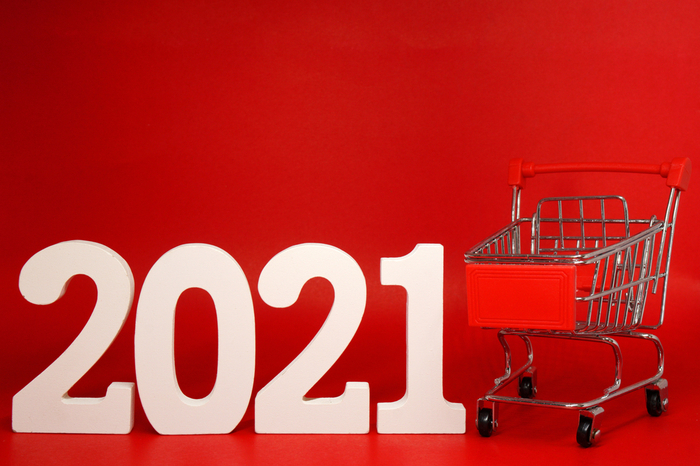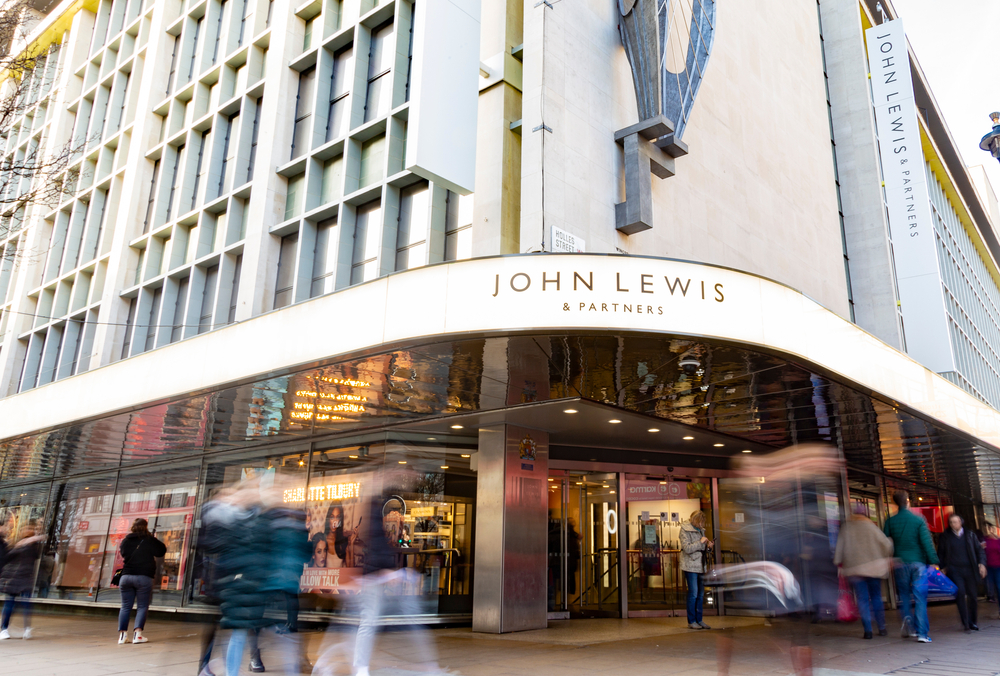Although 2020 was a tough year for retail – with the pandemic leading to several lockdowns, the start of a recession and a series of business restructures and administrations – 2021 presents a whole new set of challenges.
Many remain cautious or sceptical as to what this year represents for UK retail. But thanks to the news of the vaccines, hope is on the horizon.
Predicting the path for UK retail this year all depends on the course of the pandemic, especially around infection rates, how quickly the vaccine can be rolled out, restrictions on movement, and restrictions on the sector through the tiered system and national lockdowns.
The Centre for Retail Research estimated that by the end of 2021, retail sales would still be lower than in 2019 – but by 2022, retail sales should have recovered.
On the other hand, the KPMG/Ipsos Retail Think Tank was cautiously optimistic, highlighting how pent up savings and demand, improved consumer confidence, and a successful vaccine rollout would all help to support the recovery of UK retail – especially in the second half of the year.
Meanwhile, The Institute of Grocery Distribution (IGD) predicted that grocers are set to see a stabilisation in sales in 2021, as large supermarkets evolve to reflect the changing needs of shoppers. IGD also said the UK food and grocery market is expected to be valued at £197 million this year.
The new year arguably started with a blow for non-essential retailers, which were allowed to open their stores for much of the crucial Christmas trading period, after they were forced to close under Tier 4 regulations or national lockdowns. As of this week, each of the countries in the UK are now under respective national lockdown restrictions for several weeks. It marks the first time the whole nation has entered lockdown since last spring, and the KPMG/Ipsos Retail Think Tank warned that there were still “very tough times ahead”.

Yet while Covid may plagued the UK retail sector since last year, Brexit is also likely to present a fresh set of major challenges.
The UK may have officially left the EU in January 2020, but as per the Withdrawal Agreement, it remained a member of the single market and customs union for the rest of the year during what was known as the Brexit transition period.
With Brexit transition period ending on New Year’s Day, some fresh regulations are now on the horizon. This means new rules and regulations for retailers and consumers that had not come into effect until this month.
A BRC told Retail Gazette that with a new trade deal in place due to Brexit, retailers would need to work out new supply chain regulations and other processes.
“Brexit will have a massive impact on retailers for years to come and will change some aspects of the way they get their supplies,” a BRC spokesman said.
“It will change some of the costs that they have, which will have an impact on the prices on the shelves.
“It might mean we see either delays or simply some foods with shorter shelf lives, and that’s also going to be a challenge.
“No doubt we will see retailers looking at alternative supply routes and seeing if there are some opportunities to be hacked somewhere in this Brexit challenge.”

London Designer Outlet (LDO) general manager Sue Shepherd predicted that while an end, of some sorts, may be in sight for the Covid pandemic, Brexit will be back in focus in 2021.
“This will put strains on supply chains and consumer choice,” she said.
“However, the retailers that perform the strongest will be those that take action to future-proof themselves. That means retailers that make good use of technology, give their guests memorable in-store experiences and maintain relevance.”
Retail expert Nelson Blackley told Retail Gazette that although a trade deal with the EU appears to have been reached, the precise post-Brexit impact on all parts of the UK retail sector is not yet clear, or fully evident.
“It’s likely that some imported products from the EU will rise in price, reflecting the increased administration required,” he explained.
“However major retailers, such as Tesco, have already said they don’t believe this will be significant.
“It’s unlikely anything will become cheaper of course unless there are some significant exchange rate benefits which emerge as the UK begins life outside the EU begins during 2021.”
At the height of global lockdowns, the pandemic widened the gap between bricks-and-mortar and ecommerce as consumers were pushed towards online retail at a staggering rate. Covid placed further strain on an already-embattled retail sector, and last year saw the widespread closures of fashion and department stores in particular.
Many major high street retailers, including Sir Philip Green’s Arcadia Group, Philip Day’s Edinburgh Woollen Mill Group and Debenhams, failed to stay afloat during the pandemic and filed for administration – all of which occurred in the latter months of 2020.

Arcadia and Debenhams specifically were already struggling before the pandemic. Not bolstering their online offerings at a pace fast enough to match the surge in demand for online retail had stung them when Covid gripped the UK. This arguably shows that retailers that relied heavily on physical stores for revenue have been hit the hardest by the pandemic.
Many other well-known retail brands went into administration last year, such as Cath Kidson, Coast and Karen Millen, and Oasis and Warehouse. Meanwhile TM Lewin, and Arcadia’s Evans fascia were subsequently bought out of administration and continue to operate as online-retailers.
Separately, Debanhams’ rival John Lewis recently reported that online now accounted for 60 to 70 per cent of its sales, compared to before the pandemic it was only 40 per cent.
“Bricks-and-mortar will continue to be a vital part of retailers’ strategies,” Shepherd told Retail Gazette.
She added that prior to the rollout of Tier 4 restrictions and national lockdowns, LDO had welcomed two new stores to the centre, with the Adidas store upsizing by nearly two thirds.

With the pandemic driving customers online, one trend that could emerge in 2021 is the rate of retailers repurposing store space. Equipped with the many lessons learned from Covid, it’s likely retailers will not only revitalise their stores, but completely reinvent it.
In fact, John Lewis was given the green light by Westminster City Council last October to convert almost half of its London flagship store on Oxford Street into office space. The council’s planning sub-committee voted unanimously “on the basis of exceptional circumstances to justify the loss of retail floorspace”.
Although Boxpark chief executive Roger Wade remained positive that bricks-and-mortar retail would recover, he said the shopping experience this year won’t be the same as before.
“We expect many empty buildings in the short-term,” he told Retail Gazette.
Wade said that while bricks-and-mortar stores have had to adopt more elements of the online experience in order to encourage consumers to keep visiting them, the tables will turn. He said online retailers would now be looking to develop a physical presence to capitalise on the closure of high street shops.
To highlight his point, he referred to the rising popularity of pop-up spaces and pop-up retail, especially for smaller, independent businesses. Wade said this showed that “physical retail offers a completely unique and more immersive experience than online shopping”.
“To help physical retail survive, it is crucial to level the playing field between online retailers and physical, high street stores,” he said.

Independent retailers became the focus of retail in 2020 as shoppers turned to their local high streets during the height of the first lockdown. This year, consumers are likely to continue their loyalty with them.
Shepherd said consumers won’t be going back to their old habits, and concepts such as the 15-minute city – where everything consumers want or need is within a short walk – are becoming a focus for place-makers across the globe.
“2021 could be a good year for small and local retailers,” she explained.
“In the year when our worlds were confined to a 15-minute radius, we all began to appreciate our corner shop and our local independent retailers a little bit more.
“Lockdown forced us to rely on the shops in our neighbourhoods in ways we hadn’t before.”
Wade agreed. He added that independent retailers have been a crucial element in the survival of the UK’s high streets during the pandemic.
“In a world where you can now buy everything online from large chain stores, independent retailers fill in the gaps by offering unique, artisan products and a more personalised experience for consumers,” he said.
“The ‘shop local’ movement has been around for years, but it’s seen a major resurgence in 2020, which will likely continue in 2021.
“However, independents can’t possibly compete among the ecommerce retail giants like Amazon because they are encumbered with increasing business rates that might be effectively 40 per cent of its rent.
“We need the government to re-evaluate business rates to help level the playing field.”
The BRC said that throughout 2021, retailers retailers should be asking themselves questions to make sure they’re fully prepared.
“The big questions on many of their minds will be how will Brexit go? What will be the impact? Will we get a deal? How long will the effects of the pandemic last? And how permanently?” the spokesman said.
“Will some of the trends in shopping change? What will happen to business rates? Will they offer some kind of targeted relief as needed to retailers who’ve been hardest hit by the pandemic?”
Whatever happens in 2021, much of the unexpected rise in online retail during 2020 is likely to remain as shoppers become more comfortable with digital technology. The process of shopping online and supermarkets are likely to continue to increase their home delivery capacity to meet demand.
Retailers will need to look back carefully at the different phases that emerged during 2020, learn the lessons, and be ready to navigate a quick changing retail environment this year.
Covid-19 shook up the world of retail and its impact is likely to last a while. Retailers will need to be prepared for any situation, having supply chains, warehouses, store leases and distribution channels that can pivot as required.
Click here to sign up to Retail Gazette’s free daily email newsletter


















